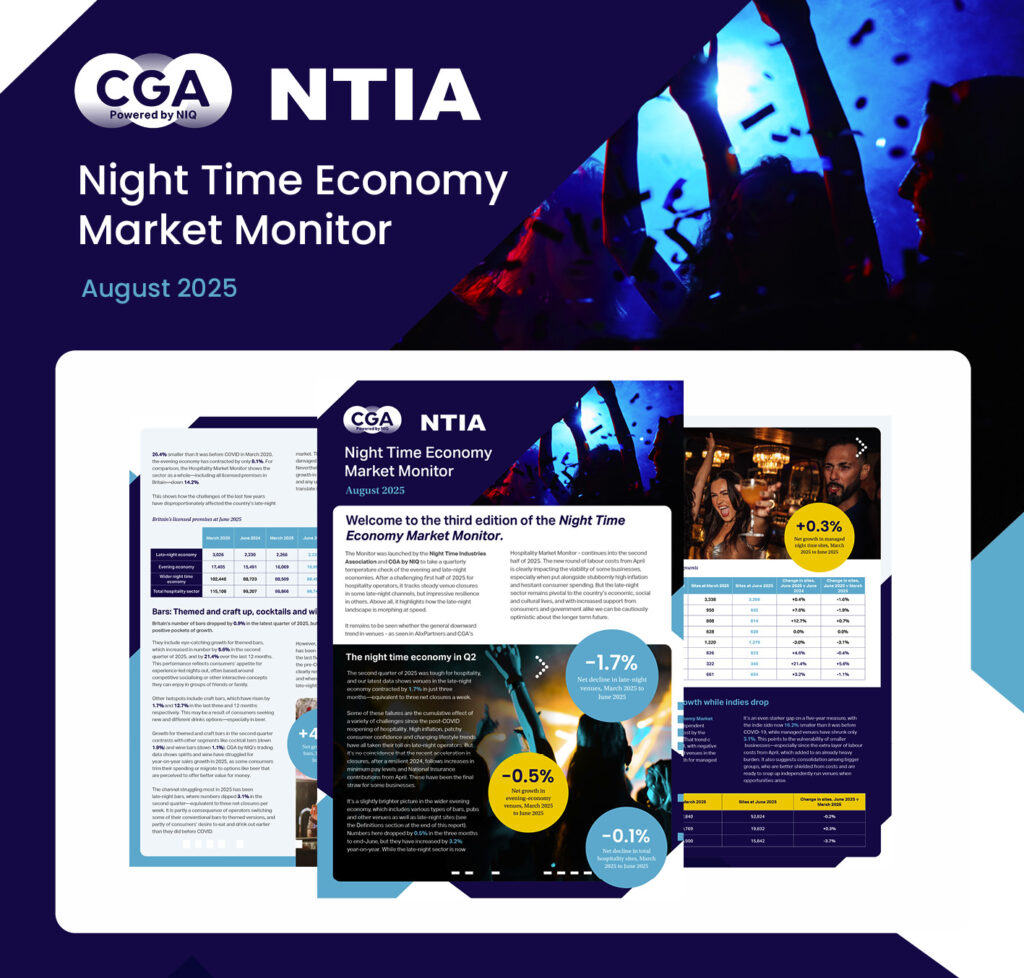
According to the research, compiled by the NTIA and CGA by NIQ, losses have stepped up over the past three months with three net closures of venues a week, creating what the NTIA warns are ‘night-time deserts’ across the country.
The late-night sector has contracted 26.4% since March 2020, compared with the 14.2% contraction seen across the wider hospitality sector.
“We’re witnessing the loss of important social infrastructure from our towns and cities. Nightclubs and late-night venues are more than just places to dance – they’re cultural institutions, economic engines and cornerstones of community life,” said Michael Kill, CEO of the NTIA.
The decline in wider night-time economy venues is evident across all UK regions, although Wales and London are among the hardest hit, seeing declines of -16.8% and -15.3% since 2020. Across the UK’s major cities, Birmingham has experienced the largest decline in late-night venues, at -27.5%, while Greater London’s late-night venue numbers have dropped 20.8%. The capital now has 343late-night venues, compared with 433 in March 2020. Edinburgh has seen a gradual decline in late-night venues, falling 13.0% since March 2020 to a total of 47 in June 2025, while Liverpool has also seen a steady decline, dropping 13.9% to 93 late night venues in June 2025.

“The closure of one in four late-night venues changes the UK’s cultural landscape. Small venues nurture new talent, fuelling the success of globally renowned artists and the creative economy. You don’t get Ed Sheeran, Dua Lipa, or Oasis without small venues. The collapse of independent venues puts the entire night-time economy at risk,” added Michael Kill.
Said Karl Chessell, business unit director – hospitality operators and food, EMEA at CGA by NIQ: “These closures have coincided with soaring operational costs—including increases to minimum wage and National Insurance in April—and a continued shortfall in post-pandemic support for independent operators. Although we have seen growth in venues such as themed bars and cocktails bars, our nightclubs and traditional late-night bars are cultural assets that we’re in danger of losing for good.”
The Night Time Economy Market Monitor from CGA by NIQ and Night Time Industries Association provides exclusive quarterly analysis of the night time licensed sector across Britain, with breakdowns of openings and closures by region, channel, tenure and more. Its expert analysis of trends and developments helps operators, suppliers and investors assess opportunities and challenges across the sector. Download the full report here.



 Said Karl Chessell, business unit director – hospitality operators and food, EMEA at CGA by NIQ: “These closures have coincided with soaring operational costs—including increases to minimum wage and National Insurance in April—and a continued shortfall in post-pandemic support for independent operators. Although we have seen growth in venues such as themed bars and cocktails bars, our nightclubs and traditional late-night bars are cultural assets that we’re in danger of losing for good.”
Said Karl Chessell, business unit director – hospitality operators and food, EMEA at CGA by NIQ: “These closures have coincided with soaring operational costs—including increases to minimum wage and National Insurance in April—and a continued shortfall in post-pandemic support for independent operators. Although we have seen growth in venues such as themed bars and cocktails bars, our nightclubs and traditional late-night bars are cultural assets that we’re in danger of losing for good.”